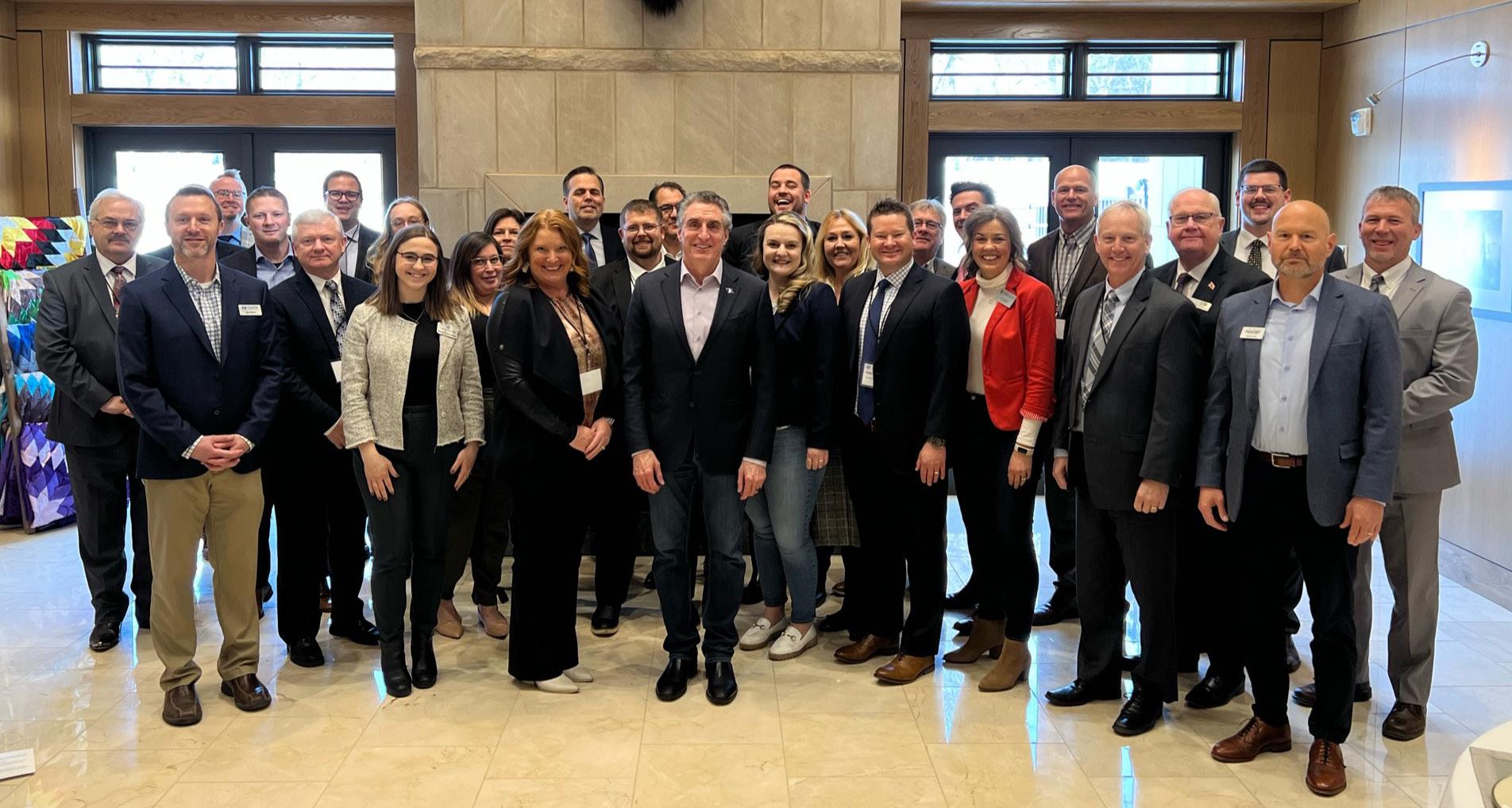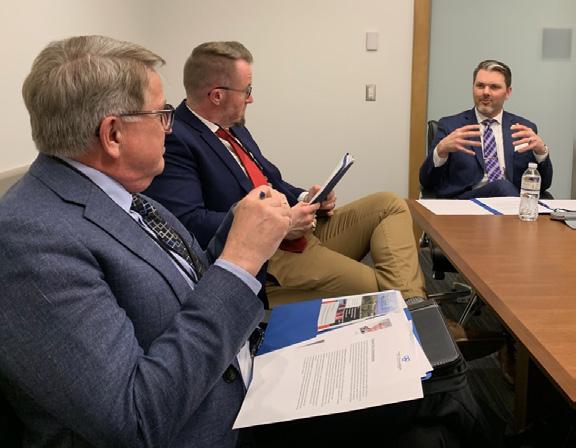
2 minute read
From our President & Chair
Asa catalyst for growth and prosperity in the region, the FMWF Chamber serves as a collective voice of business at the local, state and federal level. We are proud to publish this 2023 Legislative Review to serve as a resource for our business community.

Over the past several months, The Chamber has been at the forefront of many crucial efforts and conversations to shape and support policies that drive economic growth while promoting and protecting the needs of our business community. Through our collective voice and active engagement with leaders and policymakers in Minnesota, North Dakota and Washington, D.C., we have continued to make our regional presence felt while advocating for legislation that fosters an environment conducive to business growth, innovation and prosperity.
This review guide draws attention to the results of The Chamber’s top legislative priorities in both Minnesota and North Dakota, along with the corresponding voting record of our local legislators. We publish this review to increase accountability and awareness of our elected officials’ votes on the issues most important to our business community and region. We also intend for this to serve as public appreciation for those who were aligned on so many critical issues. This publication does not constitute an endorsement of any political candidate, party or organization. The list of bills included in this review is not comprehensive of The Chamber’s legislative agenda this session, but contains the key bills that were of greatest importance throughout the session.
As one of the largest chambers in Minnesota and North Dakota, representing over 1,800 member businesses, more than 100,000 employees, and serving the greater region, we understand the importance and impact of public policy and advocacy work. The Chamber has been a long-time trusted voice in this arena building coalitions and influencing policy. Recently, we have further expanded our impact by weighing in on more bills, building cohesion among our area legislators, and publicly publishing voting records on key issues.
Legislative policies impact us all; the more informed and engaged our Chamber members are, the stronger our voice becomes.
Made up of business and community leaders from across the region, the Public Policy Committee serves as The Chamber’s advocacy arm. The committee is dedicated to advancing sound policies that foster a stable regulatory environment for the business community to thrive.
The group routinely drafts overarching stances and legislative priorities, as well as takes action on individual policies as they become relevant. These stances are all recommendations for the board to consider. Action by the board is necessary for them to become official Chamber stances.
The Board of Directors, comprised of diverse leaders in our local business community, is the policy-making body for The Chamber. They help set and carry out the vision of the organization. Once the Public Policy Committee makes a recommendation for a policy stance, the board reviews the information and considers action on an official Chamber stance.
In the policy world, things can move very quickly. In the case that a policy stance is needed in short time, the board may take the issue up without formal recommendation from the Public Policy Committee.
Once the Board of Directors has voted on an official stance, The Chamber begins taking action. The Chamber engages with public officials to educate them on the business community’s thoughts, raises public awareness and builds coalitions with other entities to make a greater impact. Additionally, The Chamber encourages local businesses to use their voice by disseminating helpful resources such as policy briefs, talking points, legislative contacts and bill updates.
This publication is not an exhaustive list of bills The Chamber advocated for or against this session. Rather, it exists to provide insight into legislation that The Chamber expended most of its time and resources on throughout the legislative session. The pieces of legislation outlined in the publication were selected by The Chamber’s internal staff, utilizing a criterion, which included various lobbying and advocacy activities to determine the level of engagement. These criteria included written testimony, verbal (in-person or virtual) testimony, member engagement, lobbyist engagement and delegation engagement. This guide does not constitute an endorsement of any political candidate, party or organization.




